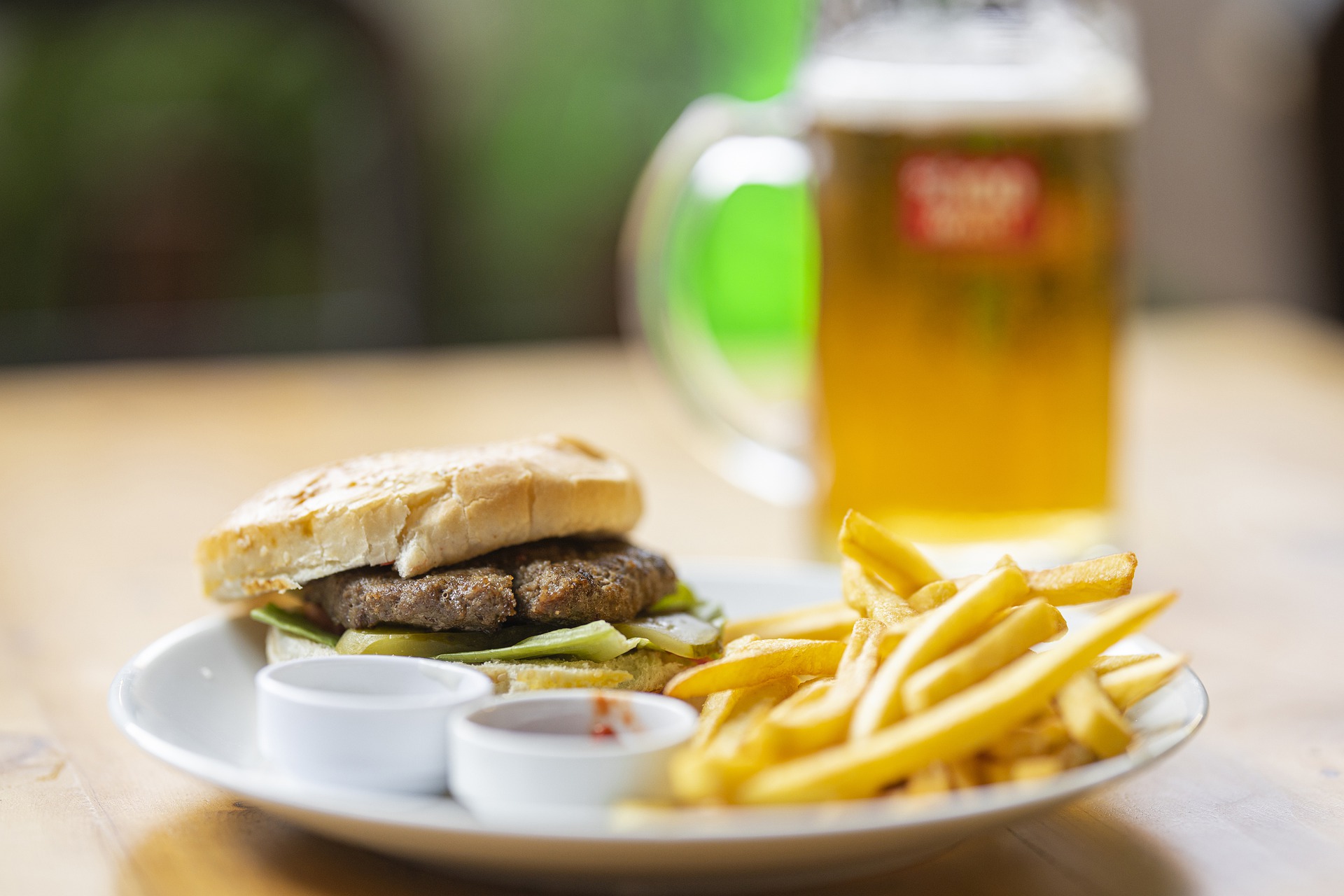
Cholesterol is a waxy, fat-like substance found in the blood and every cell of the body. Some amount of cholesterol is needed to keep the cells and organs healthy. Total cholesterol has three main components:
LDL (low-density lipoprotein), also called “bad” cholesterol, makes up most of the body’s cholesterol. High LDL levels in the blood can lead to a build-up of fatty substances that eventually narrow the arteries and block blood from flowing normally. When blood flow to the heart is blocked, it can cause a heart attack. On the other hand, when blood flow to the brain is blocked, it can lead to stroke and peripheral artery disease (PAD).
HDL (high-density lipoprotein), also called “good” cholesterol, absorbs cholesterol and transports it back to the liver. The liver then helps to expel it from the body. High levels of HDL cholesterol can lower the risk of heart disease and stroke.
Triglycerides are a type of fat sometimes called “lipids” in the body. Most of the fats we eat, including butter, oils, etc., are in triglyceride form. Excess calories, alcohol, or sugar in the body turn into triglycerides and are stored in fat cells throughout the body. High levels of triglycerides may contribute to the hardening of the arteries or thickening of the artery walls, which increases the risk of stroke, heart attack, and heart disease. Extremely high triglycerides levels can also lead to acute inflammation of the pancreas (pancreatitis).
According to a study conducted by the National Heart, Lung, and Blood Institute (NHLBI), unhealthy lifestyle choices can cause high levels of LDL/”bad” cholesterol in the body. These includes:
Eating food rich in saturated fats or trans fats. The major types of fats in the food we eat include saturated, polyunsaturated, monounsaturated, and trans fats. Consuming food that is high in saturated fats or trans fats increases the chances of “bad” LDL cholesterol. Saturated fats are usually found in meats like beef, poultry with skin, or lamb and dairy products. Additionally, trans-fat could be found in packaged snacks or desserts. Therefore, it is always recommended to check the nutrition facts label on the food package and consume food having as little trans fats as possible.
Lack of exercise/physical activity contributes to high levels of triglycerides in the body and reduction of HDL levels in the body. So it is often recommended to engage in some sort of physical activities like walking, biking, swimming, jogging, or using an exercise machine at a low speed. However, one should start slowly and must check with his/her doctor before starting any exercise program. Exercise alone won’t have much impact on LDL cholesterol levels unless combined with lifestyle changes including variations in dietary patterns and weight loss.
Smoking and chewing tobacco is another contributor that may increase total cholesterol and LDL-C levels in your body. Cigarettes contain a host of toxins, like acrolein, a toxic respiratory irritant that could be easily absorbed into the bloodstream via the lungs and may contribute to heart disease by affecting the method through which the body metabolizes cholesterol. Cigarettes also contain nicotine, an addictive chemical normally found in both tobacco and e-cigarettes. Nicotine in tobacco may cause a decrease in the HDL cholesterol level and can cause accretion of lipids in the arterial wall (1). Quitting smoking at any stage would lower cholesterol levels.
Stress and Cholesterol: Research revealed that people that experience more stress at work have an increased chance of being diagnosed with high cholesterol. The body produces a hormone called cortisol in response to stress. Long-term stress leads to high levels of cortisol in the body that may lead to the accumulation of more fats in the body and may also increase appetite. These factors can boost cholesterol in the body. In addition to cortisol, the body also releases the hormone epinephrine (adrenaline) to trigger a “fight or flight” response to deal with the stress. This response will then trigger triglycerides, which can increase the levels of “bad” cholesterol in the body(1).
Alcohol and Cholesterol: According to the American Addiction Centers, regular heavy alcohol intake, which includes wine, beer, hard liquor, or mixed drinks, is associated with higher levels of bad cholesterol (LDLs) and high blood pressure. Additionally, the continuous and prolonged use of alcohol can lead to chronic high cholesterol and can cause damage to the pancreas. Other research revealed that moderate to mild amounts (no more than one 5-ounce serving per day of red wine) are associated with healthy cholesterol levels (3). The key here is to avoid consuming heavily on a regular basis to keep your heart healthy.
In addition to the above unhealthy lifestyle conditions, one’s inherited genes, medical conditions like chronic kidney disease, diabetes, obesity, PCOS, menopause, etc., and certain medications may also contribute to high cholesterol.
Your doctor may order a lipid panel blood test to measure your blood cholesterol. You may be asked to fast before the test. This means you should not eat or drink anything except water for 9 to 12 hours before your blood is drawn. You should also ask your doctor whether you should take your usual prescribed medication before the test and if there are any other special instructions required.
According to the US Department of Health and Human Services, adults over the age of 20 are instructed to get their cholesterol levels checked once every 5 years.
Lab Testing API offers a range of blood tests to measure the amount of each type of cholesterol and fats in the blood. Lipid Panel Blood Test is one such comprehensive panel that is used to measure Cholesterol, Total; Triglycerides; HDL Cholesterol; LDL-Cholesterol (calculated); Cholesterol/HDL Ratio (calculated); Non-HDL Cholesterol (calculated). An individual can order their blood work at discounted rates through our website, and all lab orders include a physician’s order.
In addition to the diagnostic tests, your doctor will also do your physical examination by asking you about your eating habits, physical activity, family history, and medications you’re currently taking. They may also collect information about other risk factors for heart or blood vessel diseases. This combined information would let your doctor assess your risk of complications from high blood cholesterol.
Our next blog will discuss some natural ways to lower your cholesterol levels.
Written by Dr. Shikha Sharma, Reviewed by Dr. Harshi Dhingra
